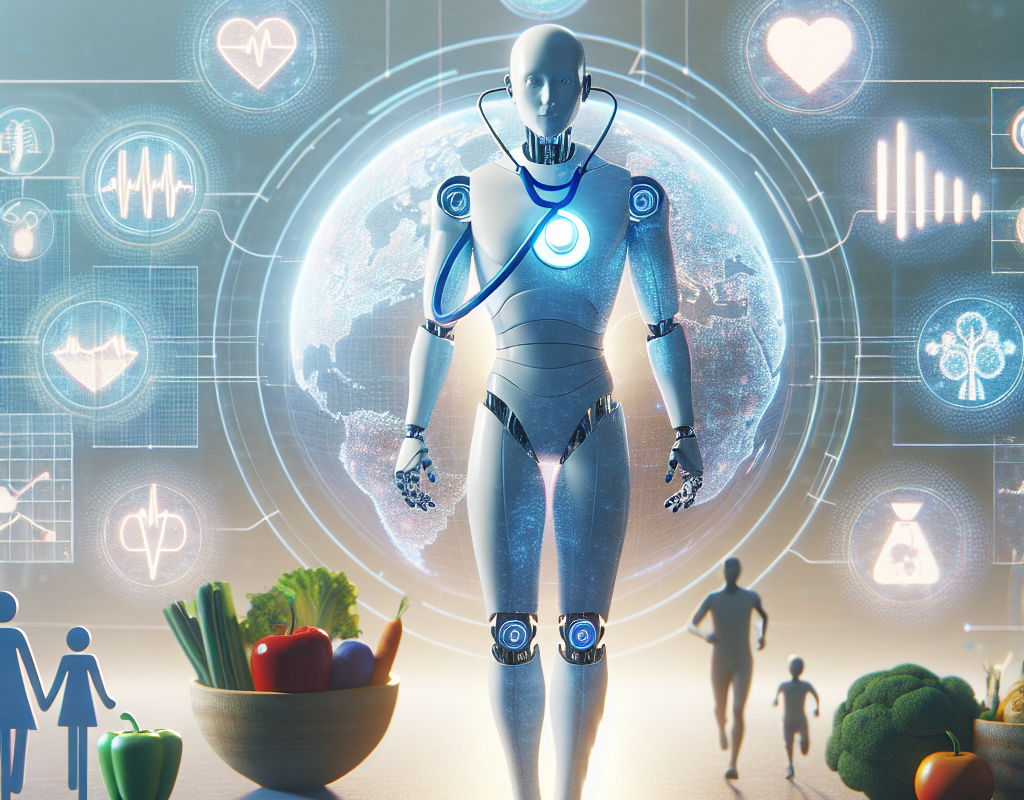The Role of AI in Modern Healthcare
The advent of artificial intelligence (AI) has begun to make significant strides in various sectors, and healthcare is no exception. Public health initiatives are being fundamentally transformed by the integration of AI technologies. From predictive analytics to personalized medicine, AI is revolutionizing the way we approach public health, making it more efficient and effective.
AI in Disease Detection and Diagnosis
Early Detection
One of the most promising applications of AI in public health is in the early detection of diseases. Machine learning algorithms can analyze vast amounts of data more quickly and accurately than human analysts. For example, AI can sift through medical records to identify early signs of conditions like cancer or cardiovascular diseases. This enables healthcare providers to intervene earlier, potentially saving lives.
Accurate Diagnoses
AI-powered diagnostic tools are also enhancing the accuracy of diagnoses. Imaging technologies such as MRI and CT scans, when combined with AI, can detect anomalies that might be missed by the human eye. Moreover, AI algorithms can integrate various data points to provide a comprehensive diagnosis, reducing the chances of misdiagnosis.
Personalized Medicine
Personalized medicine aims to tailor healthcare treatments to individual patients. AI is making significant strides in this area by analyzing genetic, environmental, and lifestyle factors. Machine learning models can predict how different patients will respond to various treatments, allowing healthcare providers to develop personalized treatment plans. This not only improves outcomes but also reduces the risk of adverse reactions and side effects.
Optimizing Public Health Campaigns
Public health campaigns often aim to educate and inform the population about vital health issues. AI can optimize these campaigns by identifying target demographics, predicting the most effective communication channels, and even tailoring messages to individual needs. For instance, AI can analyze social media trends to gauge public sentiment and adapt public health messages accordingly.
Predictive Analytics
Predictive analytics is another area where AI is making a substantial impact. By analyzing historical health data, AI can predict future trends and outbreaks. This allows public health officials to take preemptive measures, allocate resources more efficiently, and implement strategies to mitigate the impact of potential health crises. Predictive analytics can also help in managing chronic diseases by forecasting patient needs and intervening before complications arise.
Enhanced Patient Care
AI technologies are enhancing patient care by streamlining administrative tasks, improving patient monitoring, and facilitating telemedicine. AI-powered chatbots can handle routine inquiries, freeing up healthcare professionals to focus on more complex issues. Additionally, AI can monitor patient vitals in real-time, alerting healthcare providers to any abnormalities and allowing for quicker interventions.
Telemedicine
The COVID-19 pandemic has accelerated the adoption of telemedicine, and AI plays a crucial role in its implementation. AI can triage patients, schedule appointments, and even assist in remote diagnoses. This is particularly beneficial for rural and underserved communities, providing them with access to quality healthcare without the need for travel.
Ethical Considerations
While the benefits of AI in public health are numerous, it is essential to consider ethical implications. Issues such as data privacy, algorithmic bias, and equitable access to AI technologies must be addressed to ensure that AI is used responsibly. Policymakers and healthcare providers must work together to create guidelines and regulations that protect patient rights while maximizing the benefits of AI.
Conclusion
AI is undeniably transforming public health initiatives, offering solutions that were once thought to be futuristic. From early disease detection to personalized medicine, AI is improving healthcare outcomes and making public health initiatives more effective. However, to fully realize its potential, it is crucial to navigate the ethical challenges and ensure that these technologies are accessible to all. The future of public health looks promising, with AI leading the way towards a healthier tomorrow.




